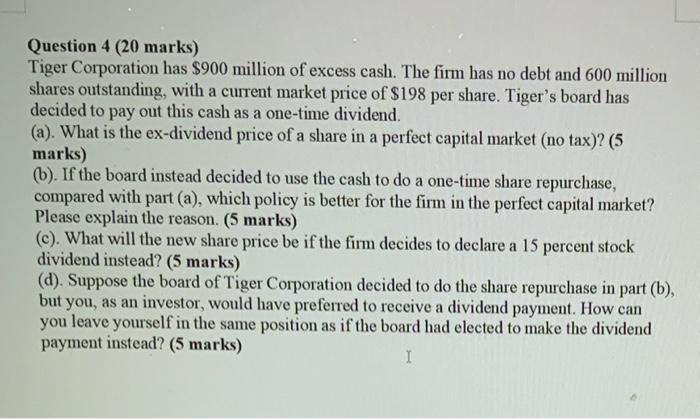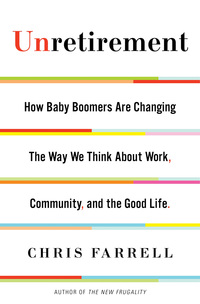Answered step by step
Verified Expert Solution
Question
1 Approved Answer
Question 4 (20 marks) Tiger Corporation has $900 million of excess cash. The firm has no debt and 600 million shares outstanding, with a current

Step by Step Solution
There are 3 Steps involved in it
Step: 1

Get Instant Access to Expert-Tailored Solutions
See step-by-step solutions with expert insights and AI powered tools for academic success
Step: 2

Step: 3

Ace Your Homework with AI
Get the answers you need in no time with our AI-driven, step-by-step assistance
Get Started


